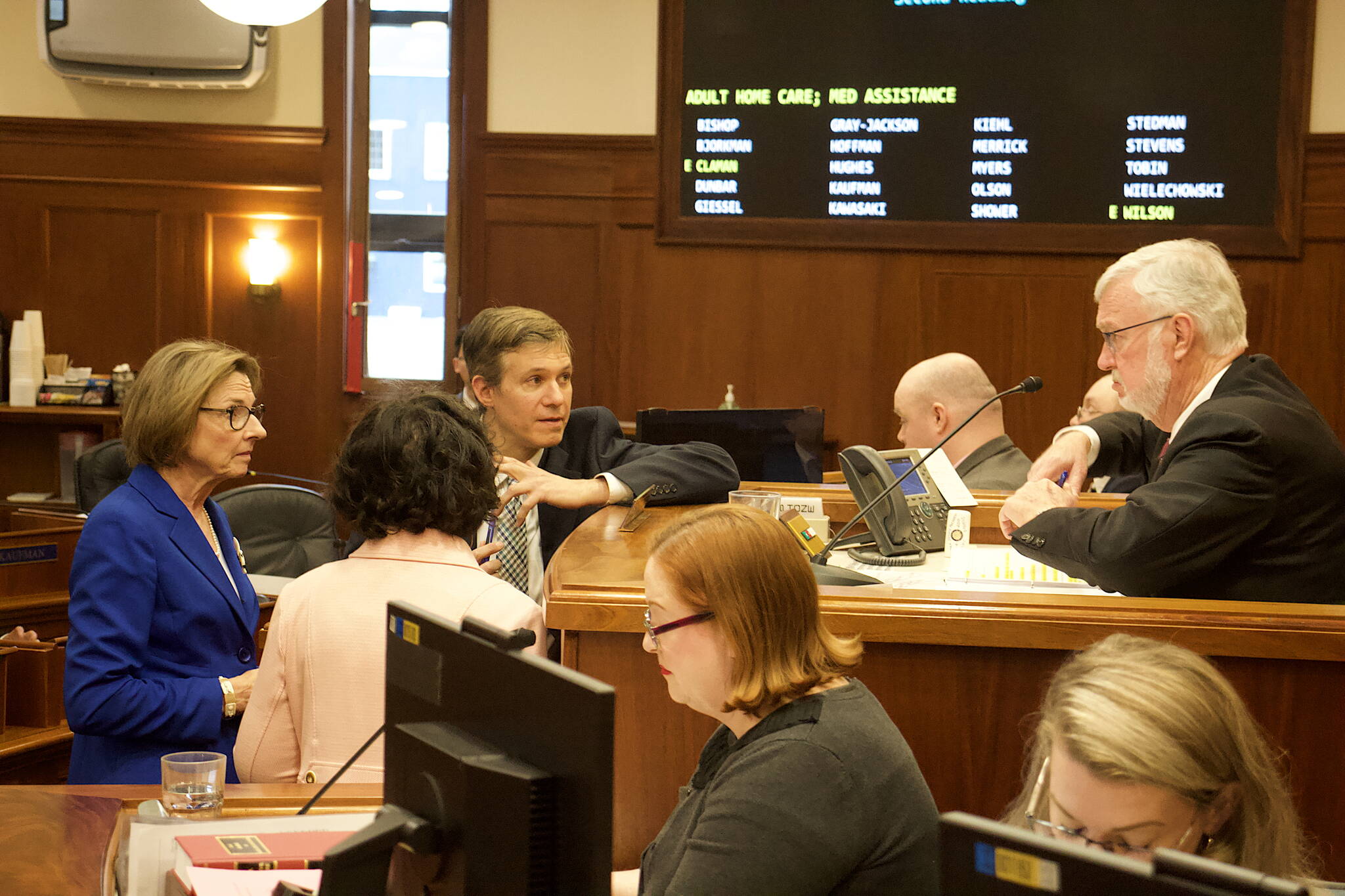Allowing people to receive Medicaid funds for providing home care for an elderly or disabled adult, as well as certain other residents of all ages needing daily care, was unanimously approved Monday by the state Senate.
Senate Bill 57, introduced by Gov. Mike Dunleavy, classifies those providing elderly and disabled care as adult day care centers for the purposes of Medicaid eligibility. An amendment successfully added Monday by Senate Majority Leader Cathy Giessel, an Anchorage Republican, allows the State Department of Health to quickly seek an extension of a federal waiver implemented during the COVID-19 pandemic that allows such reimbursement for other home health care patients, but is scheduled to expire May 11.
“We know that home health care provides more stability and it is far less expensive for the state of Alaska,” she said during Monday’s floor session.
Giessel said the bill is especially important for remote areas since they’re lacking facilities providing around-the-clock care, which is a rapidly growing program due the aging of the state’s population.
“Alaska’s population of seniors has increased more than 55% in the last 10 years,” she said. “We have the highest increase of people over 65 and with Alzheimer’s in nation. It’s been called the senior tsunami.”
There was no opposition expressed to the bill during the committee process, Giessel said.
Its companion bill in the House (HB 58) is scheduled to be heard by the House Finance Committee on Wednesday.
The bill allows home care for up to two residents (or three under special circumstances) with fewer administrative requirements than existing assisted living facilities. Five types of patient classification waivers — such as various disabilities and children with complex medical conditions — would receive an equal amount of federal and state reimbursement that would apply to about 5,000 residents.
Among the people and agencies supporting the bill is Stephanie Wheeler, the state’s long-term care ombudsman, who in a letter to the Senate Finance Committee stated establishing a new residential care category will help resolve a frequent concern heard by her agency.
“Often while visiting seniors in Assisted Living Homes we frequently hear from elders that, while they love their current living environment, they wished that they could find an Assisted Living Home close to the community where they have family or a home close to where they were born and raised,” she wrote. “Despite Alaska being the biggest state in the United States, it also has the fewest options when it comes to assisted living. Meeting the needs of older Alaskans in their community is critical to supporting healthy aging and community sustainability.”
• Contact Mark Sabbatini at mark.sabbatini@juneauempire.com.

